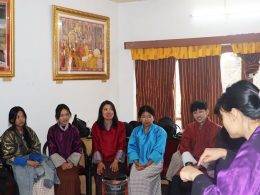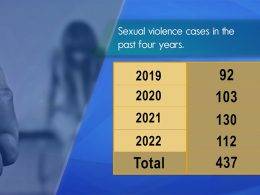Bhutan’s first-ever Media Perception Index has revealed a fascinating paradox in the country’s media landscape: while social media has emerged as the most widely used source of information, Bhutanese citizens continue to place their greatest trust in traditional platforms such as newspapers and television.
The nationwide survey, which covered around 700 respondents across 14 districts, sheds light on the evolving habits of a society balancing between deep-rooted trust in long-standing institutions and the rapid pull of digital media.
Social Media: Popular, But Distrusted
The study found that social media dominates daily information consumption, driven by the convenience of mobile phones and widespread internet connectivity. Its interactive, instant, and multifunctional nature allows users to access news, entertainment, and communication in one space. In many rural areas, social platforms have also helped bridge geographical barriers, offering people immediate access to developments across the country and beyond.
Yet despite its popularity, confidence in social media remains weak. The gap between usage and trust underscores a key concern: while Bhutanese rely heavily on digital platforms, they remain cautious about misinformation and credibility issues.
Traditional Media Holds Firm
In contrast, outlets such as BBS TV and Bhutan’s major newspapers continue to enjoy a reputation for reliability. Their long history, national significance, and established editorial standards have cemented public confidence. Many Bhutanese also accept information from local media without question, reinforcing the credibility of traditional outlets.
“While social media has surpassed traditional media in popularity, trust in it remains low. Overall, people still trust television and newspapers more,” explained Rinzin Wangchuk, Executive Director of the Journalists’ Association of Bhutan (JAB).
Building Credibility in a Changing Era
The findings have sparked calls for both strengthening traditional media and investing in the credibility of digital platforms. JAB Chairperson Needrup Zangpo emphasized the need to adapt: “We need to build trust and credibility of social media even as we try to support traditional media, adapt to new technologies, and embrace social media changes.”
Officials from the Department of Media, Communications, and Information Technology (DoMCIIP) echoed similar sentiments. “This is the first time such a survey has been conducted. With digitisation and social media, we must reassess the relevance of mainstream media in this shifting environment—not only in Bhutan, but across the world,” said Binod Pradhan, the department’s Chief Information and Media Officer.
Road Ahead: Local Content and Credibility
The survey recommends that Bhutanese media focus on bolstering accuracy, independence, and credibility while expanding content in local languages and digital formats. Greater attention to local and rural issues, it notes, will help broaden reach and strengthen relevance.
As Bhutan navigates this transitional period, the findings of the Media Perception Index serve as a timely reminder: while technology continues to redefine the way people consume information, trust remains firmly rooted in institutions built on reliability and accountability.








